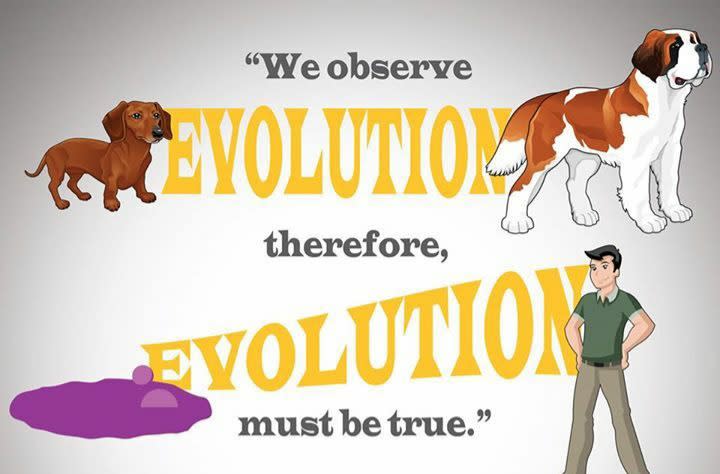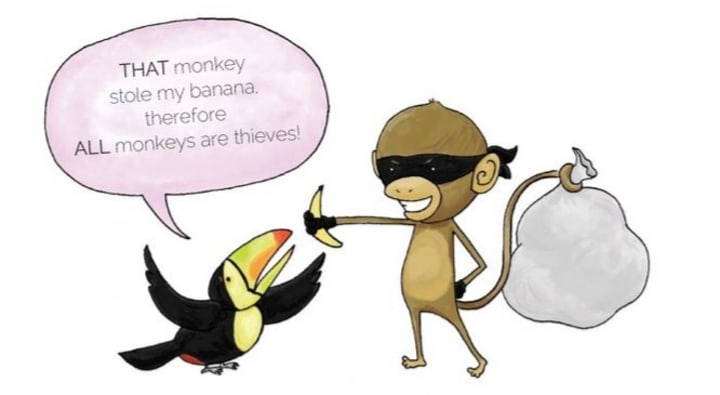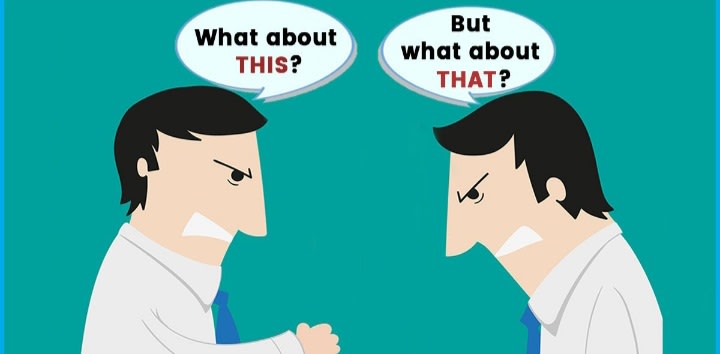Let's talk about Logical Fallacies(Part-2)
Definitions and examples

Debate or argument is our day to day event. We do it most often formally or informally. When you are debating with someone, you want to use all of the resources in your disposal to convince the other person that you are right, That’s pretty good until you are not ending up with logical fallacies to just establish your point whereas your point is becoming invalid.
Logical fallacies mean a malfunctioned logic or an error in reasoning. I have already written the first part of this article. Please check that out here.... Logical Fallacies(Part-1)
Let's talk about the rest of the part in details in this article.
The Equivocation Fallacy:

"Equivocation" means equal voice in Latin. Which means the meaning of same word is one to you and another to me. This fallacy is all about language i.e. you are being ambiguous with your language. You're taking a word or phrase and changing its meaning slightly so that it means something else. Or you're using one word or phrase instead of another to hide the true meaning of what you're saying.
Now I'm giving some examples. I'll give easier examples first so that it is easier to understand.
Taxes are headache. Painkillers make headache go away. So, painkiller removes taxes.
Does gun kill people? Well, people kills people. That means there is no harm to give weapons to people. Isn't it?
Now I'm giving comparatively more confusing example.
Nine out of ten dentists recommend Colgate toothpaste." First of all, what does "recommend" mean here? This could be misleading – do they really specifically recommend Colgate, or do they just recommend that you brush your teeth in general?
Simply, equivocation fallacy means you're playing with words.
Appeal to Popular Opinion Fallacy:

Many a times people rely on a source or opinion only because that is supported by many people or simply it is popular and so. But the support of majority people doesn't make it correct.
For example,
i) In 18th century, most of the people believed that blacks and whites are not equal.
ii) In 6th century, burying girls alive was supported by many people.
iii) People supported colonization in 18th and 19th century.
Nothing becomes right or wrong only because this is popular in this era. It may not be in coming centuries. So absolutely, it is a logical fallacy.
Hasty Generalization fallacy:

People make generalizations all the time and sometimes this is ok. The problem arises, though, when someone uses a generalization a bit too zealously without sufficient evidence. These types of "hasty" generalizations can fall into stereotyping, racism, falsehood, exaggeration, and more.
For example, you are judging a community or race or religion based on the work or behaviour of a group of people of that community. You can't simply generalise the whole community. Rather you can use "Sometimes", "Often", "We often see", or "It may be the case that...".
Many a times fightings and riot occurs due to this. Because by blaming the whole community you are hurting their beliefs or sentiments. And anyway you don't have 100% proof that all the people are actually like this. So we have to beware of our words.
Whataboutism:

According to Oxford Dictionary "Whataboutism" means The technique or practice of responding to an accusation or difficult question by making a counter-accusation or raising a different issue. It is a variant of the tu quoque logical fallacy
Maybe it is the most widely used fallacy consciously or unconsciously. Political propaganda is spread through this. The accusation isn't wrong itself but the accusation is used in wrong place or it is not relatable with the topic.
A politician is caught for corruption and he is accusing his another political foe who is also corrupted.
Here the accusation is not wrong but the politician himself is caught, it doesn't matter whether the other politicians are corrupted or not. Just only the other one is also corrupted doesn't make his crime justified.
Suppose you're arguing with someone who is in favor of a dam that's being constructed in a beautiful river. You bring up the environmental impact that said dam will have, and how devastating it'll be to the surrounding natural habitat.
Your opponent might say something like "Yes it will destroy the habitat for many fish and other river animals, but if we don't build the dam it'll take jobs away from so many people who would've worked on it.
Now the logic is not wrong itself. But here we are not talking about the workers who will be hired in future. By the way, it would be a headache if they are already hired but they are not. We were focusing on environmental impact and in this case the opponent's words are whataboutism.
Appeal to pity fallacy:
When we are talking about arguments or logics, emotions don't actually count. Truth and falsity aren’t emotional categories, they are factual categories. They deal in what is and is not, regardless of how one feels about the matter.
To be honest, emotions can sometimes be relevant. Often, the emotional aspect is a key insight into whether something is morally right or wrong. But emotion can't be a determinant of right or wrong.
For example, you may heard of the viral ticktocker Cameron Herrin,18-year-old man who was behind the wheel of a Ford Mustang that hit and killed a mother and her baby on Bayshore Boulevard in 2018, was sentenced to 24 years in prison.
But he was handsome and famous social influencer. Only for that reason many people protested for his bail, they were giving excuses like he may become a popular actor and etc. etc. All their claims were based on emotions and that's not right. He had done crime so he has to be punished. Emotions don't count here.
We've just discussed a whole bunch of logical fallacies, and you might be thinking – how can I make any arguments at all without saying something fallacious?
Just one thing to say which is practice. Practice avoiding these mistakes and try to come up with more powerful and relatable logics. That's how you will become a good thinker and logical person. Good luck!!!
About the Creator
Tanvir Rashik Shafim
I'm an enthusiastic writer and want to make sure that people can experience life in all of its forms through writing | Writes about Philosophy, Geopolitics, Tech, Psychology and more.






Comments
There are no comments for this story
Be the first to respond and start the conversation.